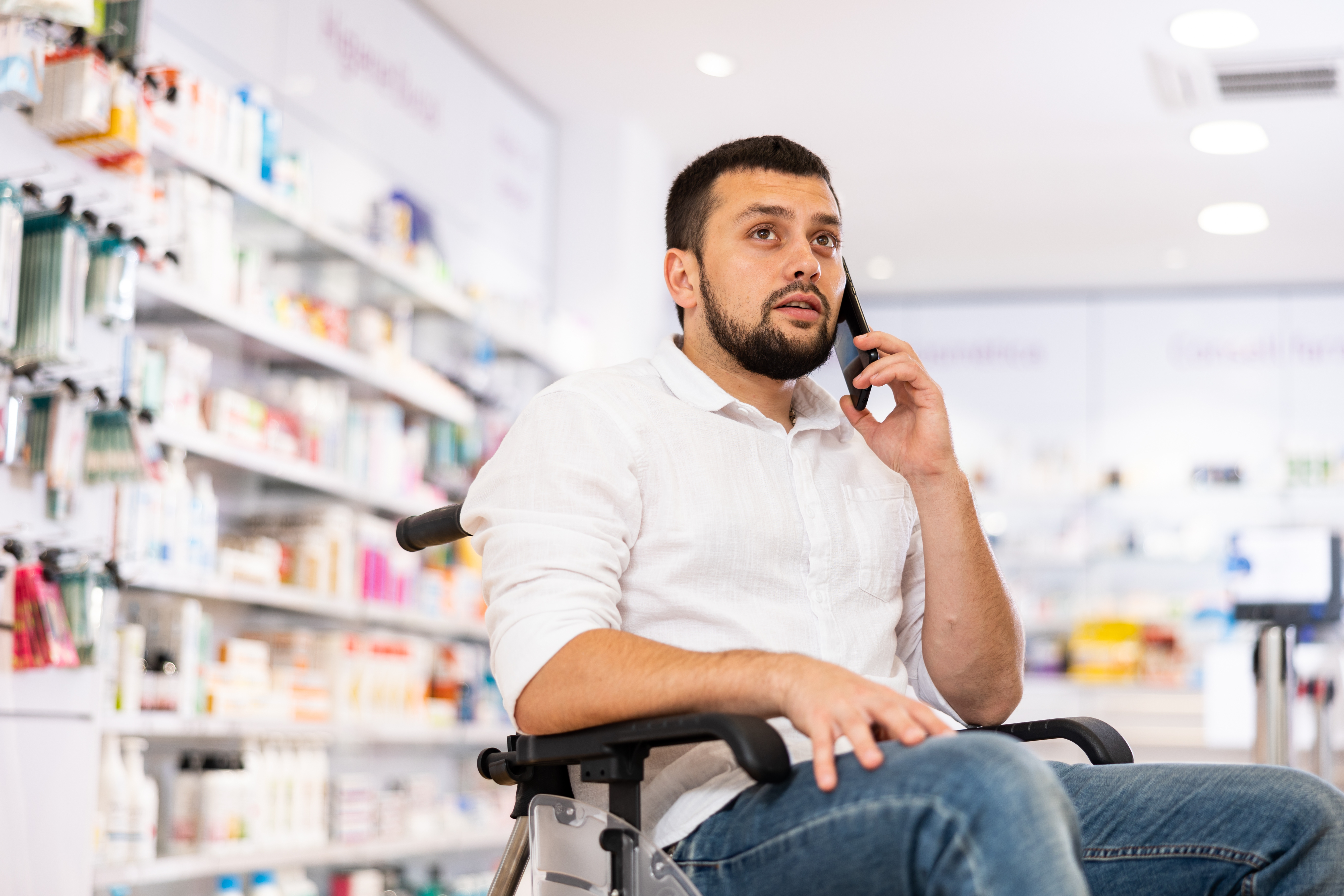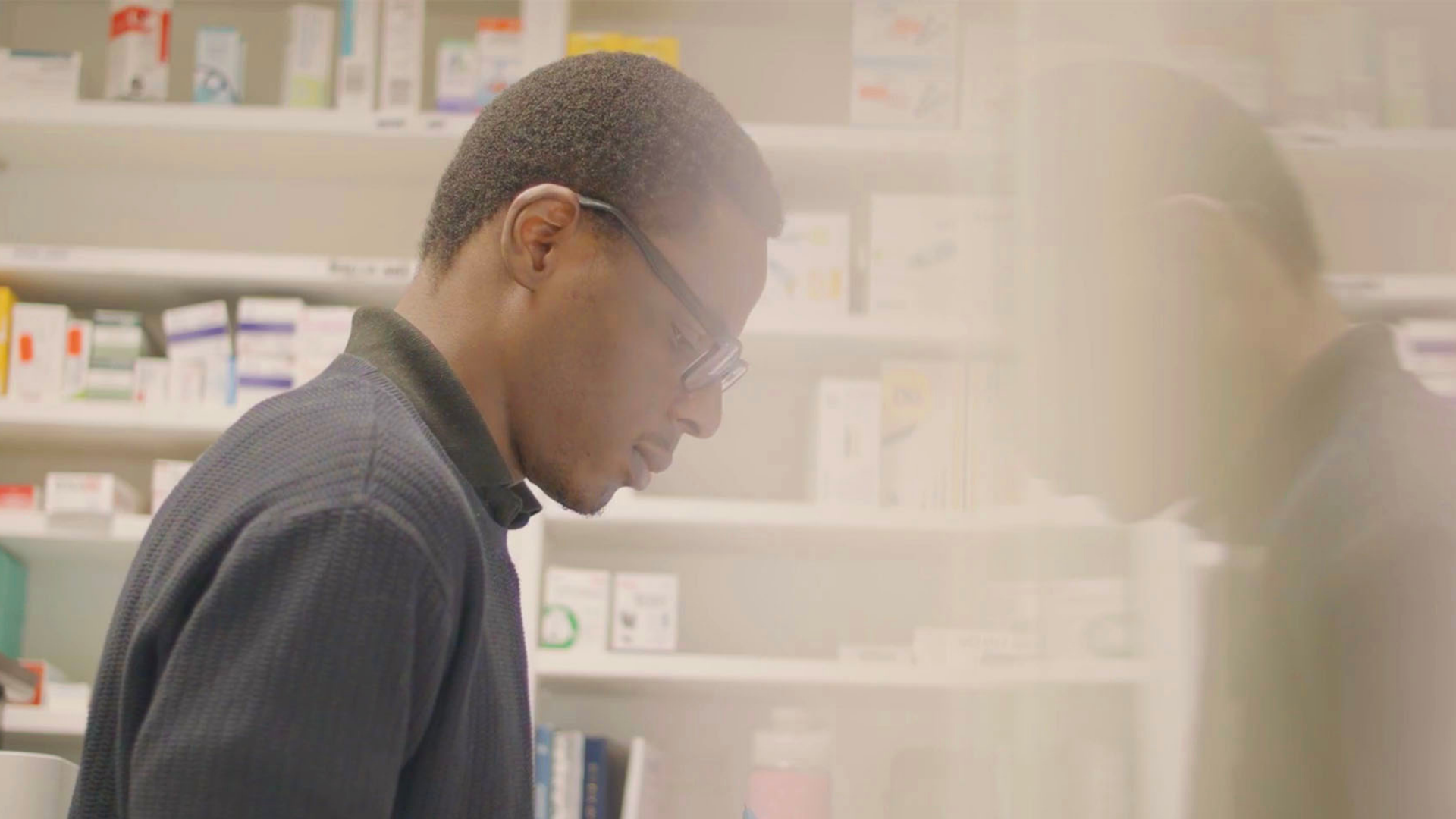If you have a disability and are working, training or studying as a pharmacist, you may be looking for support and information.
This could be around what assistance you’re entitled to, worry about loss of work due to illness, making a declaration to the GPhC, ensuring fair treatment at work, sitting your GPhC final assessment exam, or questions around managing your studies. This page looks at suggestions that will help you to manage your work/study/life balance.
Jump to …
Disabled Students Allowance (DSA)
If you’re at university and your disability affects your ability to study, you can apply for Disabled Students Allowance (DSA). This financial support can go towards things such as sign language interpreters, specialist mentors, specialist equipment or assistive technology, and disability-related costs travelling to and from university. DSA is provided in addition to other student finance, you won’t have to pay it back and it doesn’t affect your other benefits. You can apply for DSA if you have a disability that affects your ability to study, such as a:
- specific learning difficulty, for example dyslexia or ADHD
- mental health condition, for example anxiety or depression
- physical disability, for example if you have to use crutches, a wheelchair or a special keyboard
- sensory disability, for example if you’re visually impaired, deaf or have a hearing impairment
- long-term health condition, for example cancer, chronic heart disease or HIV.
You must also:
- be an undergraduate or postgraduate student (including Open University or distance learning)
- qualify for student finance from Student Finance England
- be studying on a course that lasts at least a year
You can find out more about claiming DSA on the government website.
Personal Independence Payment (PIP)
PIP can help you to pay for any additional costs that you may incur owing to your disability. PIP is not means tested and even if you are working you can still make a claim for PIP. You can get Personal Independence Payment (PIP) if all of the following apply to you:
- you’re 16 or over
- you have a long-term physical or mental health condition or disability
- you have difficulty doing certain everyday tasks or getting around
- you expect the difficulties to last for at least 12 months from when they started
You can find out more about making a claim for PIP on the government website.
If you would like some help with deciding whether you are eligible for any disability benefits, we can refer you to our specialist benefits adviser. They can talk you through the eligibility criteria and help you to submit a claim.
Contact us for a benefits referral
Access to Work
Access to Work can help you get or stay in work if you have a physical or mental health condition or disability.
The support you get will depend on your needs. Through Access to Work, you can apply for:
- a grant to help pay for practical support with your work
- support with managing your mental health at work
- money to pay for communication support at job interviews.
You can find out more about Access to Work on the government website.
Requesting reasonable adjustments for university exams and the GPhC final assessment exam
If you’re a student, you can ask your university for adjustments during exams. These adjustments could include things such as:
- doing the exam in a smaller room without other students
- having comfort breaks or snacks
- dictating to a notetaker or using a computer
- additional time.
You will also be able to request reasonable adjustments in the GPhC final assessment exam. You will need to:
- identify your condition
- provide evidence of your diagnosis from a suitably qualified professional
- tell the GPhC what adjustment you consider would mitigate your disadvantage
The GPhC often require a greater level of evidence than universities before granting a reasonable adjustment. It is important that you double check with the GPhC in advance of submitting your request as they will require documented evidence to support your submission.
For more information on requesting adjustments in the registration assessment see the GPhC website.
Reasonable adjustments in the workplace
Reasonable adjustments at work apply to all workers. Employers are required to make sure that if you have a disability, or physical or mental health condition, you are not substantially disadvantaged when you are doing your job. This means that disabled workers, as far as is reasonable, have the same access to everything involved from application to doing and keeping their job as a non-disabled person.
The employer only has to make adjustments where they are aware – or should be reasonably aware – of a disability. Do be prepared to be open and honest with your employer so that they can then help you with any necessary adjustments.
Reasonable adjustments can include things like:
- Making adjustments to premises
- Altering working hours/shift patterns
- Acquiring or modifying equipment
- Modifying instructions or reference manuals
Assistance with requesting reasonable adjustments
You can get further advice and support from your trade union. Students and trainees can join the Pharmacists’ Defence Association (PDA), the trade union for pharmacists, for free. You can find out more about membership and the benefits of joining a trade union on the PDA website. Alternatively, if you are not a member of a trade union you can contact Pharmacist Support for employment advice.
Contact Pharmacist Support





